 W
WBlood diamonds are diamonds mined in a war zone and sold to finance an insurgency, an invading army's war efforts, or a warlord's activity. The term is used to highlight the negative consequences of the diamond trade in certain areas, or to label an individual diamond as having come from such an area. Diamonds mined during the 20th–21st century civil wars in Angola, Ivory Coast, Sierra Leone, Liberia, Guinea, and Guinea-Bissau have been given the label. The term conflict resource refers to analogous situations involving other natural resources.
 W
WThe Ambassador is a 2011 Danish documentary film created and directed by Danish filmmaker and journalist Mads Brügger. The film was nominated for the Grand Jury Prize at the 2012 Sundance Film Festival, ultimately losing to The House I Live In.
 W
WThe Angolan Civil War was a civil war in Angola, beginning in 1975 and continuing, with interludes, until 2002. The war began immediately after Angola became independent from Portugal in November 1975. The war was a power struggle between two former anti-colonial guerrilla movements, the communist People's Movement for the Liberation of Angola (MPLA) and the anti-communist National Union for the Total Independence of Angola (UNITA). The war was used as a surrogate battleground for the Cold War by rival states such as the Soviet Union, Cuba, South Africa and the United States.
 W
WAyan (transl. Creator) is a 2009 Indian Tamil-language action film co-written and directed by K. V. Anand. The film, starring Suriya, Prabhu, Tamannaah, Akashdeep Saighal, Jagan, and Karunas, was produced by M. Saravanan and M. S. Guhan, distributed by Sun Pictures. The film score and soundtrack was composed by Harris Jayaraj, edited by Anthony Gonsalvez, the film was filmed by M. S. Prabhu.
 W
WThe Clean Diamond Trade Act (CDTA), signed by United States President George W. Bush on 25 April 2003, implemented the Kimberley Process Certification Scheme (KPCS) to regulate the commercial sale of diamonds. On July 29, 2003, Bush signed Executive Order 13312, which described the implementation of the Clean Diamond Trade act. The act requires that all diamonds imported to the United States or exported from the United States have a Kimberley Process Certificate. The act aims to prohibit the importation of diamonds whose mining fuels conflict in the country of origin.
 W
WDiamond Trust of London is a turn-based strategy video game by Jason Rohrer, with music by Tom Bailey. Following a crowdfunding campaign on Kickstarter the game was published by indiePub and released for the Nintendo DS on August 28, 2012. The game has been placed in the public domain and is hosted on SourceForge.
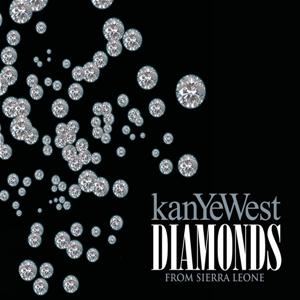 W
W"Diamonds from Sierra Leone" is a song by American rapper Kanye West from his second studio album, Late Registration (2005). The song was produced by West, Jon Brion, and Devo Springsteen. The producers, with the exception of Brion, are credited as songwriters alongside John Barry and Don Black, who both received credit due to their composition being sampled. The song was initially centered around West's group of friends, though was later re-recorded once he learned about blood diamonds in Sierra Leone. West premiered the song for Hot 97 on April 20, 2005, before it was sent to US mainstream radio stations the following month as the album's lead single, through Roc-A-Fella and Def Jam.
 W
WThe economy of Angola remains heavily influenced by the effects of four decades of conflict in the last part of the 20th century, the war for independence from Portugal (1961–75) and the subsequent civil war (1975–2002). Despite extensive oil and gas resources, diamonds, hydroelectric potential, and rich agricultural land, Angola remains poor, and a third of the population relies on subsistence agriculture. Since 2002, when the 27-year civil war ended, government policy prioritized the repair and improvement of infrastructure and strengthening of political and social institutions. During the first decade of the 21st century, Angola's economy was one of the fastest-growing in the world, with reported annual average GDP growth of 11.1 percent from 2001 to 2010. High international oil prices and rising oil production contributed to strong economic growth, although with high inequality, at that time.
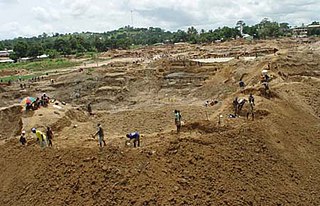 W
WThe economy of Sierra Leone is that of a least developed country with a gross domestic product (GDP) of approximately US$1.9 billion in 2009. Since the end of the Sierra Leone Civil War in 2002 the economy is gradually recovering with a GDP growth rate between 4 and 7%. In 2008 its GDP in PPP ranked between 147th and 153rd (CIA) largest in the world.
 W
WBlood Diamond is a 2006 American political action thriller film co-produced and directed by Edward Zwick and starring Leonardo DiCaprio, Jennifer Connelly, and Djimon Hounsou. The title refers to blood diamonds, which are diamonds mined in war zones and sold to finance conflicts, and thereby profit warlords and diamond companies across the world.
 W
WRobert R. Fowler is a Canadian diplomat and was the special envoy of UN Secretary-General Ban Ki-moon to Niger from mid-2008 to 2009, to find a solution to the conflict in Agadez region.
 W
WGlobal Witness is an international NGO established in 1993 that works to break the links between natural resource exploitation, conflict, poverty, corruption, and human rights abuses worldwide. The organisation has offices in London and Washington, D.C. Global Witness states that it does not have any political affiliation. Gillian Caldwell joined the organisation as executive director in July 2015 and Mark Stephens was appointed Chair in March 2016. In February 2020, Mike Davis became CEO of Global Witness.
 W
WIvory Coast, also known as Côte d'Ivoire, officially the Republic of Côte d'Ivoire, is a country located on the south coast of West Africa. Côte d'Ivoire's political capital is Yamoussoukro in the centre of the country, while its economic capital and largest city is the port city of Abidjan. It borders Guinea to the northwest, Liberia to the west, Mali to the northwest, Burkina Faso to the northeast, Ghana to the east, and the Gulf of Guinea to the south. The official language of the republic is French, with local indigenous languages also being widely used that include Bété, Baoulé, Dioula, Dan, Anyin, and Cebaara Senufo. In total, there are around 78 different languages spoken in Ivory Coast. The country has large populations of the adherents of Christianity, Islam and various indigenous religions.
 W
WThe Kimberley Process Certification Scheme (KPCS) is the process established in 2003 to prevent "conflict diamonds" from entering the mainstream rough diamond market by United Nations General Assembly Resolution 55/56 following recommendations in the Fowler Report. The process was set up "to ensure that diamond purchases were not financing violence by rebel movements and their allies seeking to undermine legitimate governments."
 W
WMartin Rapaport is chairman of the Rapaport Group, founder of the Rapaport Diamond Report and the RapNet online diamond trading network. Rapaport has been called a "maverick" by some within the diamond industry for standardizing and publishing diamond prices. He has also been criticized for non-transparency in his methodology, as well as his silence over a corruption scandal involving the GIA, with which he has strong ties. Rapoport was an early proponent of the Kimberley Process aimed at limiting the number of "conflict diamonds" in worldwide circulation.
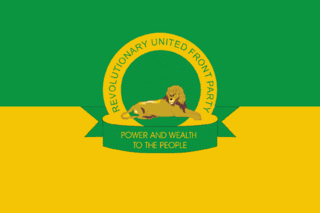 W
WThe Revolutionary United Front (RUF) was a rebel army that fought a failed eleven-year war in Sierra Leone, beginning in 1991 and ending in 2002. It later transformed into a political party, which still exists today. The three most senior surviving leaders, Issa Sesay, Morris Kallon and Augustine Gbao, were convicted in February 2009 of war crimes and crimes against humanity.
 W
WJonas Malheiro Savimbi was an Angolan revolutionary politician and rebel military leader who founded and led the National Union for the Total Independence of Angola (UNITA). UNITA waged a guerrilla war against Portuguese colonial rule from 1966 to 1974 then confronted the People's Movement for the Liberation of Angola during the Angolan Civil War. Savimbi was killed in a clash with government troops in 2002.
 W
WThe Sierra Leone Civil War (1991–2002), or the Sierra Leonean Civil War, was a civil war in Sierra Leone that began on 23 March 1991 when the Revolutionary United Front (RUF), with support from the special forces of Charles Taylor's National Patriotic Front of Liberia (NPFL), intervened in Sierra Leone in an attempt to overthrow the Joseph Momoh government. The resulting civil war lasted 11 years, enveloped the country, and left over 50,000 dead.
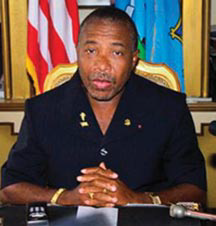 W
WCharles McArthur Ghankay Taylor is a former Liberian politician and convicted war criminal who served as the 22nd President of Liberia from 2 August 1997 until his resignation on 11 August 2003, as a result of the Second Liberian Civil War and growing international pressure. Taylor gained a reputation by some Africans as a man of many faces. To his loyal supporters including Liberian humanitarian Cornelius Keagon, he was a preacher who gradually drifted into nationalist politics. To others, he is a rebel leader who later became president in Liberia's first democratic elections.
 W
WUnited Nations Security Council resolution 864, adopted unanimously on 15 September 1993, after reaffirming resolutions 696 (1991), 747 (1992), 785 (1992), 793 (1992), 804 (1993), 811 (1993), 823 (1993), 834 (1993) and 851 (1993), the Council noted the continuing situation in Angola and went on to condemn and place international sanctions on UNITA.
 W
WUnited Nations Security Council resolution 1173, adopted unanimously on 12 June 1998, after reaffirming Resolution 696 (1991) and all subsequent resolutions on Angola, particularly Resolution 1127 (1997), the council announced its intention to impose further sanctions against UNITA for non-compliance, unless it co-operated to extend state administration throughout the country.
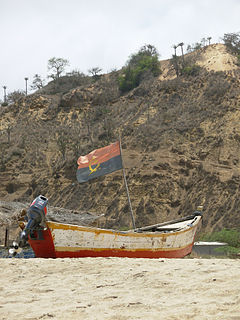 W
WUnited Nations Security Council resolution 1176, adopted unanimously on 24 June 1998, after reaffirming Resolution 696 (1991) and all subsequent resolutions on Angola, particularly Resolution 1173 (1998), the Council suspended its intention to impose further sanctions against UNITA for non-compliance until 1 July 1998.
 W
WUnited Nations Security Council resolution 1237, adopted unanimously on 7 May 1999, after reaffirming Resolution 696 (1991) and all subsequent resolutions on Angola, particularly resolutions 864 (1993), 1127 (1997), 1173 (1998) and 1229 (1999), the council established expert panels to investigate violations of measures imposed against UNITA.
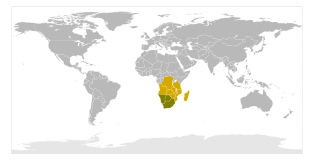 W
WUnited Nations Security Council resolution 1295, adopted unanimously on 18 April 2000, after reaffirming Resolution 864 (1993) and all subsequent resolutions on Angola, particularly resolutions 1127 (1997), 1173 (1998) and 1237 (1999), the Council authorised a tightening of sanctions against UNITA and established a panel of experts to investigation violations of Security Council resolutions imposing measures against UNITA.
 W
WUnited Nations Security Council resolution 1306, adopted on 5 July 2000, after recalling all previous resolutions on the situation in Sierra Leone, particularly resolutions 1132 (1997), 1171 (1998) and 1299 (2000), the Council decided to prohibit the direct or indirect import of rough diamonds from the country. The rebel Revolutionary United Front controlled 90% of the diamond-producing areas in Sierra Leone and was using diamonds to finance its operations.
 W
WUnited Nations Security Council resolution 1343, adopted unanimously on 7 March 2001, after recalling resolutions on Sierra Leone and the region, including resolutions 1132 (1997), 1171 (1998) and 1306 (2000), the Council demanded that Liberia end its support for rebels in Sierra Leone and threatened the imposition of wide-ranging sanctions unless the country complied with the Security Council.
 W
WUnited Nations Security Council resolution 1385, adopted unanimously on 19 December 2001, after recalling all resolutions on the situation in Sierra Leone, particularly resolutions 1132 (1997), 1171 (1998), 1299 (2000) and 1306 (2000), the Council extended sanctions against the import of rough diamonds except those controlled by the government from the country for a further 11 months, beginning on 5 January 2002.
 W
WUnited Nations Security Council resolution 1446, adopted unanimously on 4 December 2002, after recalling all previous resolutions on the situation in Sierra Leone, particularly resolutions 1132 (1997), 1171 (1998), 1299 (2000), 1306 (2000) and 1385 (2001), the Council extended prohibitions relating to the import of rough diamonds not under the control of the Sierra Leonean government until 5 June 2003.
 W
WUnited Nations Security Council resolution 1459, adopted unanimously on 28 January 2003, after recalling resolutions 1173 (1998), 1295 (2000), 1306 (2000), 1343 (2001), 1385 (2001) and 1408 (2002) concerning the illicit trade in diamonds, the Council expressed support for the Kimberley Process Certification Scheme (KPCS).